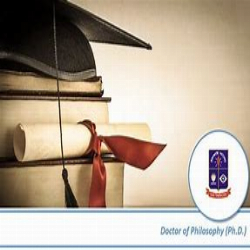What are some effective ways to manage stress and prevent burnout during your Ph.D. journey, and how can you seek support when needed?

Navigating the labyrinthine corridors of a Ph.D. journey requires unwavering commitment, dogged persistence, and unyielding determination. Simultaneously, it demands vigilance, self-awareness, and proactivity in combating stress, preventing burnout, and seeking support when needed.
Armed with the following techniques, you stand poised to overcome adversity, safeguard mental health, and cultivate a flourishing existence defined by balance, joy, and fulfillment.
Identifying Early Warning Signs of Stress and Burnout
Understanding the symptoms associated with stress and burnout enables swift intervention, averting catastrophic consequences before they materialize. Common indicators include:
- Persistent fatigue, lethargy, or insomnia
- Irritability, impatience, or mood swings
- Loss of appetite, digestive disturbances, or headaches
- Difficulty concentrating, remembering details, or making decisions
- Feelings of helplessness, hopelessness, or despair
Monitor your emotional, mental, and physical condition closely, remaining attuned to subtle shifts that may signal incipient distress.
Implementing Daily Stress-Management Techniques
Managing daily stressors necessitates deploying a multi-pronged approach centered on:
- Deep breathing exercises, which activate the parasympathetic nervous system, inducing calm and relaxation.
- Progressive muscle relaxation, which releases tension accumulated in various body parts.
- Body scanning, which promotes somatic awareness, fostering mindfulness and presence.
- Visualization techniques, which transport users to tranquil settings, eliciting positive emotions and soothing nerves.
Incorporate these practices into daily routines, reaping their cumulative benefits over time.
Establishing Healthy Habits for Physical and Mental Well-Being
Nurturing your physical and mental health forms the bedrock of stress resistance and burnout prevention. Commit to:
- Consuming nutrient-dense foods, prioritizing whole grains, lean proteins, fruits, vegetables, and healthy fats.
- Engaging in regular exercise, incorporating cardiovascular activities, strength training, and flexibility exercises.
- Practicing good sleep hygiene, adhering to consistent bedtimes, darkening rooms, and limiting electronic device usage before retiring.
These habits bolster resilience, reinforce immune function, and enhance overall well-being.
Fostering Social Connections and Seeking Support
Cultivating strong relationships with peers, mentors, and loved ones offers solace, encouragement, and motivation during trying times. Actively pursue social opportunities, joining clubs, attending conferences, or volunteering for leadership roles within academic societies.
Seek support proactively, divulging concerns, doubts, or apprehensions with trusted confidantes. Share triumphs, breakthroughs, and achievements, reveling in the joys of collective celebration.
Planning Time Off and Sabbaticals
Preemptively scheduling breaks, vacations, or sabbaticals injects much-needed respite into otherwise ceaseless academic pursuits. Plan getaways strategically, timing them to coincide with major milestones, project completions, or exam periods.
Utilize downtime wisely, engaging in restorative activities, exploring new hobbies, or simply relaxing in nature's embrace. Return refreshed, rejuvenated, and eager to tackle lingering challenges with renewed vigor.
Cultivating a Growth Mindset and Accepting Imperfection
Adopting a growth mindset, which embraces challenges, perceives effort as the pathway to mastery, and views failure as an opportunity for learning, fortifies resilience and bolsters self-confidence. Similarly, accepting imperfection, relinquishing unattainable standards, and forgiving oneself for minor missteps fosters compassion, empathy, and understanding.
Celebrate incremental improvements, savor tiny victories, and revel in the process of continual growth, development, and transformation.
Accessing University Resources and External Support Systems
Capitalize on university-provided resources, such as counseling services, mental health clinics, or wellness programs. Connect with like-minded individuals navigating parallel paths, comparing notes, swapping strategies, and offering moral support.
Tap into external support systems, consulting therapists, coaches, or mentors specialized in assisting Ph.D. candidates. Benefit from their wealth of experience, drawing upon their expertise to craft customized solutions tailored to unique needs and circumstances.
Combatting Perfectionism and Procrastination
Perfectionism and procrastination represent insidious foes, undermining productivity, eroding self-esteem, and exacerbating stress levels. Vanquish these adversaries by:
- Breaking tasks into smaller, manageable chunks, tackling them sequentially and deliberately.
- Employing time-management techniques, such as Pomodoro sprints, Eisenhower matrices, or Getting Things Done frameworks.
- Surrendering the quest for flawlessness, settling instead for “good enough” outcomes that preserve momentum, build confidence, and minimize needless angst.
Regularly Assessing Progress and Adapting Strategies
Periodically evaluate progress, scrutinizing accomplishments, setbacks, or plateaus that merit reflection, recalibration, or refinement. Modify tactics, tweak strategies, or pivot directions as dictated by evolving realities, capitalizing on emerging opportunities or circumventing lurking hazards.
Iteratively refine your approach, remaining nimble, adaptable, and responsive to fluctuating demands, constraints, or priorities.
FAQs About Managing Stress and Preventing Burnout During Your Ph.D. Journey
Q: Are there any quick stress-reduction techniques I can utilize during hectic days?
A: Yes! Try box breathing, which consists of inhaling deeply for four counts, holding breath for four counts, exhaling slowly for four counts, and resting for four counts. Alternatively, engage in five-minute meditations using mobile apps or online guides.
Q: How do I broach sensitive topics with my advisor without appearing weak or vulnerable?
A: Initiate dialogues diplomatically, framing concerns as teachable moments, requests for guidance, or opportunities for growth. Opt for neutral language, avoid absolutes, and maintain composure, conveying maturity, professionalism, and self-assuredness.
Q: Is it okay to admit feeling overwhelmed or behind schedule to my committee?
A: Absolutely! Honesty builds trust, fosters authenticity, and opens lines of communication. Disclose setbacks transparently, propose remediation plans, and demonstrate commitment to overcoming obstacles, impressing upon stakeholders your dedication, responsibility, and resolve.
Q: How can I distinguish between healthy striving and destructive perfectionism?
A: Focus on progress, not perfection, by setting realistic goals, acknowledging limitations, and tolerating imperfections. Recognize that mistakes serve as stepping stones, not insurmountable barriers, and celebrate incremental gains, realizing that steady improvement yields superior outcomes compared to unrelenting pursuit of unattainable excellence.
Conclusion
Managing stress and preventing burnout during your Ph.D. journey mandates concerted effort, keen awareness, and unwavering dedication to self-care, support networks, and sustainable practices. Armed with the strategies enumerated herein, you stand equipped to traverse the murky waters of academic rigor, emerge unscathed, and thrive amid adversity, complexity, and ambiguity.
Ultimately, remember that balancing intellectual prowess with emotional intelligence defines true success, unlocking doors to limitless potential, boundless opportunity, and everlasting fulfillment.
